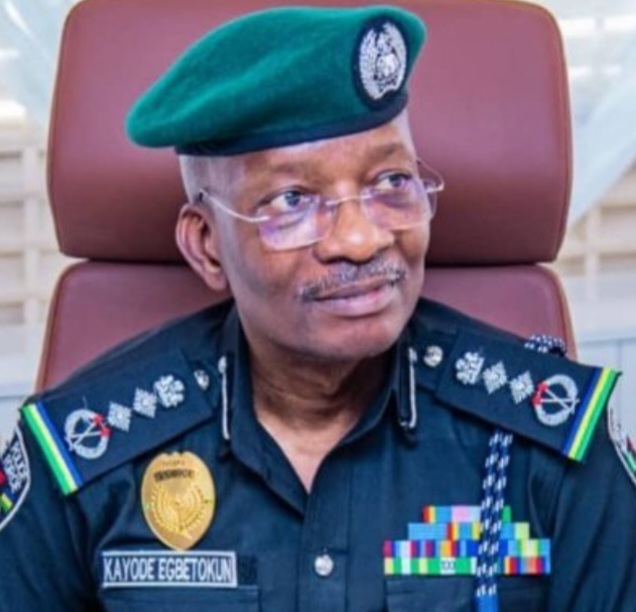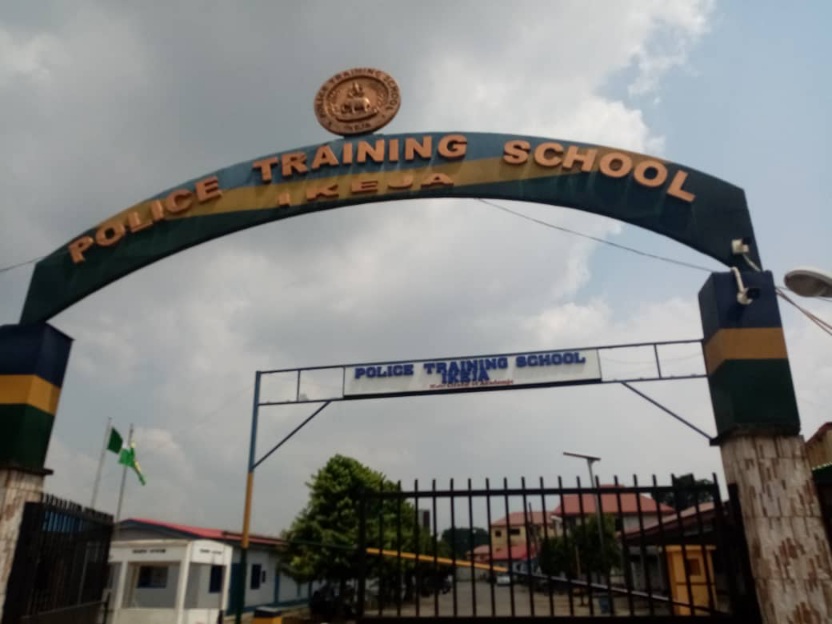Segun Atanda/
In a remarkable show of dedication to education and professional growth, the Police Service Commission (PSC) has raised the bar for excellence within the Nigeria Police Force as its Chairman, DIG Hashimu Argungu (retired), recently demonstrated a profound commitment to promoting officers who have pursued advanced academic qualifications, recognizing the significance of education in modern policing.
This exemplary move came after a visit to the Police Academy in Kano, where DIG Argungu encountered officers who had earned doctorate degrees while working to improve Nigeria’s security landscape.
As DIG Argungu noted, the promotion of such officers is a worthy recognition of their dedication and sacrifice. His call for further promotions sends a strong message throughout the ranks: that the pursuit of knowledge is respected, encouraged, and rewarded within the Force.
As a worthy recognition, the PSC has promoted four deserving officers serving as lecturers at the Police Academy in Kano: CSP Favour Fadawag, who has now risen to Assistant Commissioner of Police, alongside Inspectors Shide Sunday, Oparaji Benjamin Chetachi Ukwu, and Benjamin Wanger, who were promoted to Assistant Superintendents of Police. This unprecedented step is transforming the Force into one that values continuous learning, thereby laying a foundation for an institution rooted in knowledge, transparency, and accountability.
The Importance of Education and Recognition in Law Enforcement
Promoting officers who have pursued higher education sends a powerful signal to the police community and the nation: learning and professional development are indispensable components of effective policing. By honoring these officers, the PSC affirms that the men and women who invest in knowledge are crucial to building a disciplined, modern police force that prioritizes service and integrity.
DIG Argungu emphasized that all police officers in training institutions who possess advanced qualifications will be considered for promotion. The police community is waiting for the Commission to swiftly fulfil its promise to PhD holders whose contributions to training and development reflect the values of professionalism and intellectual growth that the PSC champions.
Such officers are waiting to add the respected “Dagger +” symbol next to their names as a badge of academic achievement.

Inspector-General of Police (IGP) Kayode Egbetokun, also a PhD holder, along with his management team, deserves recognition for supporting this progressive initiative. Their leadership demonstrates a commitment to a Nigeria Police Force that is knowledgeable, equipped to tackle complex challenges, and motivated by merit-based advancement.
Other agencies, including the Nigeria Security and Civil Defence Corps (NSCDC), have paved the way by acknowledging officers with higher academic credentials, setting a standard that the Nigeria Police Force is now embracing.

The Role of Police Colleges and Training Schools in Shaping the Force
These training institutions are more than just grounds for skill acquisition; they are where officers shape their values, hone their abilities, and become the backbone of the Nigeria Police Force. They encompass a range of colleges and schools across the nation, each tasked with preparing officers for the diverse demands of law enforcement:
1. Police Training School, Ikeja
2. Police Staff College, Jos
3. Police Academy, Wudil, Kano
4. Police College, Ikeja
5. Police College, Kaduna
6. Police College, Maiduguri
7. Police College, Oji-River
8. Police Detective College, Enugu
9. Police College of Information Technology, Abeokuta
10. Police Mobile Training School, Gwoza
11. Police Mobile Training School, Ila-Orangun
12. Mounted/Dog Training Schools, Jos
13. Traffic Training School, Ikeja
14. Police School of Music, Ikeja
15. Police School of Communication, Ikeja & Kaduna
16. Police School of Anti-Terrorism, Nonwa-Tai
17. Police Training School, Sokoto
18. Police Training School, Bauchi
19. Police Training School, Minna
20. Police Training School, Jos
21. Police Training School, Nonwa Tai
22. Police Training School, Ibadan
23. Police Training School, Benin City
24. Police Training School, Oyin Akoko
25. Police Training School, Makurdi
26. Police Training School, Iperu
27. Police Training School, Calabar
28. Police Training School, Ilorin
These institutions, under the FHQ’s ‘E’ Department (Training), play a critical role in shaping the capabilities and ethical standards of officers. It is within these schools that advanced-degree holders can make a particularly profound impact, contributing knowledge and cultivating the next generation of law enforcement professionals.
The Need for Swift Action and a Transparent Promotion Process
The PSC’s decision to reward officers with advanced qualifications is a transformative move, but it must go beyond words. DIG Argungu’s assurance that the PSC will “encourage merit and personal development as motivation” is a powerful mandate, and the police community is expecting swift implementation across all police training schools.
Officers who invest in higher learning and dedicate themselves to training others embody the principles of service and commitment.
Recognizing them through timely promotion is not only a reward for their sacrifice but also an essential morale boost for the entire Force.
Furthermore, the PSC’s stance against corruption in recruitment and training underscores its commitment to building an ethical and accountable institution.
DIG Argungu’s declaration that “enemies of our country” engaging in corrupt practices will face the law reinforces a vision of a Nigeria Police Force dedicated to justice and integrity. This is particularly important within the context of training institutions, where new recruits and aspiring officers learn the foundations of ethical conduct.
The Nigeria Police Force is at a pivotal moment. Under the leadership of DIG Argungu, IGP Egbetokun, and other progressive minds, the Force is setting a new standard—one where knowledge, dedication, and transparency lead the way. The call for promoting PhD-holding officers within the training institutions should be answered swiftly, as it symbolizes not just recognition but a promise of a brighter, more empowered police force.
0






